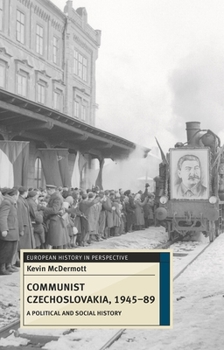Communist Czechoslovakia, 1945-89: A Political and Social History
Select Format
Select Condition 
Book Overview
Few Europeans in the twentieth century have been subject to the repeated buffetings by foreign powers, ideologically driven transformations and internal upheaval of the Czechs and the Slovaks. The period of Communist rule was complex, and those who gleefully overthrew the regime in 1989 were the very grandchildren of those who had voted for Communism with hope in the free elections of 1946.
This concise account includes both political and social history, analysing half a century of Communism from at all strata of society. Kevin McDermott is equally intrigued by those in power and ordinary citizens, asking what motivates a young Czech worker-believer to join the Communist Party in the early 1950s, enrol in the People's Militia and remain in the party during the dark years of 'normalisation', yet end up welcoming the tearing down of the Berlin Wall in 1989. Using Czech and Slovak archival sources and the most recent historiography, McDermott challenges the still dominant 'totalitarian' paradigm and argues that the forty year communist experience in Czechoslovakia cannot simply be dismissed as a Soviet-imposed aberration.Format:Paperback
Language:English
ISBN:023021715X
ISBN13:9780230217157
Release Date:August 2015
Publisher:Red Globe Press
Length:272 Pages
Weight:0.78 lbs.
Dimensions:0.6" x 5.4" x 8.4"
Related Subjects
HistoryCustomer Reviews
0 rating





